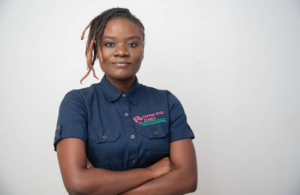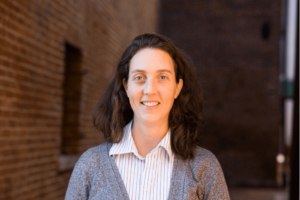Thrilling enthusiasm – optimistic drive
Youth-Adult partnership, a strategy that advocates for organizational improvement and community change by meaningfully engaging both youth-serving and youth-led organizations in decision making and action, has been a great opportunity for Copper Rose Zambia and Jhpiego. Through our partnership as one youth-led and one youth-responsive organization respectively, we have learned a lot over the year about what makes our partnership thrive. Our journey has sparked excitement and motivation towards building strong relationships, learning and working together. Here, we share some insights on how our work has progressed over a year.
Coming from different angles allows us to complement one another
We acknowledge that each of our organizations has something to contribute. And we each value the perspectives that our different positions and experiences allow us to bring to the work we do. We leverage each other’s expertise, whether that is deep understanding of the local context, existing relationships on the ground or an outside perspective to enable us able to build on global learnings without starting from scratch. We have been able to learn about various programming from each other by sharing relevant information from both contexts (global/ local).
Recommendation: Share and value each other’s experience. Finding solutions isn’t always straightforward, and truly appreciating the different perspectives that partners bring will result in greater success. This platform provides a valuable opportunity to consolidate and receive a second opinion on one’s ideas.
Flexibility is our best ability
We haven’t been very strict about how we work together, and we have adjusted over time. We connect on different platforms such as email, WhatsApp, text messaging while being consistent with meetings/schedules. We have pushed through challenges of internet connectivity and shared platforms to be able to work on live documents together—all contributing to the same documents. We have found it valuable to be able to share ideas and work together on contributions.
We have found that this flexibility is critical and allows people to participate in diverse ways. It also helps extend who can be involved. It allows others to listen in to conversations, input to documents, and join from different settings. Not being exclusive in who gets to participate (for example, only sending a couple of people to a meeting). Staff could just listen in to how things work for their own learning, rather than solely for the goal of contributing. Critical to this flexibility is ensuring it is paired with respect. Through mutual respect in sharing of ideas and contributions, we build a conducive environment to hold conversations.
Recommendation: Be flexible and keep trying until you find what works. Be thoughtful of people’s schedules and compromise when needed.
Embracing teamwork, not delegation
We have approached our partnership with a commitment to youth leadership, and we have worked to define our roles in ways that support that leadership. We collaborate continuously, but we work to ensure that it is our youth-led partner who is in the lead. Important to this is building and maintaining trust in each other. This allows us to have open conversations where we can share ideas and give meaningful feedback to one another.
Recommendations: Be clear early about partnership roles and responsibilities
Achievements!! Small wins from this partnership
Just one year in, we are already seeing the benefits of our partnership. From information sharing, development and implementation of a project youth and gender strategy to effective consortium coordination, we have been able to implement high-quality work and grow our partnership in additional ways. And while we still face the routine partner challenges like poor internet connectivity, tight deadlines, missed communication and overwhelming activities, our partnership continues to build bridges that improve the health of communities in Zambia.
About the Authors!!

Mable Kipenda is a Medical Doctor and a public health specialist with over 7 years of experience focusing on Youth health and Gender mainstreaming. She currently serves Senior Youth and Gender advisor for Copper Rose Zambia on the USAID Family health and Nutrition consortium. Her work includes providing technical assistance to the Ministry of Health on Adolescent health and Gender programming at national and subnational level. Mable is passionate about creating an enabling environment for young people’s Health.

Meghan Greeley is a nurse practitioner and public health expert with over 15 years of global health experience. She currently serves as Jhpiego’s Adolescent Health Advisor and provides technical leadership and implementation support for Jhpiego’s adolescent and youth health (AYH) portfolio. Ms. Greeley leads and supports specific technical focus areas and innovative programmatic models for Jhpiego country programs and partners; strengthens Jhpiego’s institutional capability to address AYH globally; and expands Jhpiego’s AYH portfolio in the service of the partners and communities. Ms. Greeley also serves as a Family Nurse Practitioner part-time at the Baltimore Medical Systems at a school-based health clinic in Baltimore, Maryland